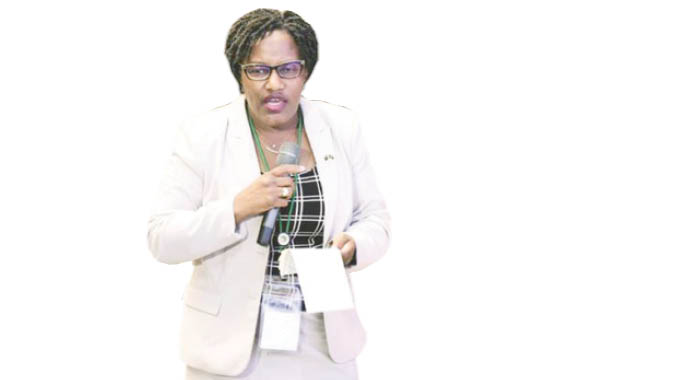
The Sunday News

Prosper Ndlovu recently in Kampala, Uganda
AFRICAN revenue administrators including Zimbabwe are considering an urgent review of tax incentives granted to large multinational companies whose growing virtual presence in the continent has prejudiced countries of potential revenue due to absence of concrete digital taxation legislation.
Africa tax administrators, policy makers and international experts who attended the just ended 4th International Conference on Tax in Africa in Kampala, Uganda, resolved that urgent interventions were needed for the continent to change tax policies to enable countries to tax incomes of digitalised businesses such as Uber, Google, Facebook booking and new financial innovations such as crypto-currency.
The high-level gathering observed that, as the world grapples with digitisation, businesses continue to change their models by embracing technology, which has resulted in more taxpayers operating in the digital space.
Zimbabwe Revenue Authority (Zimra) commissioner general, Ms Faith Mazani, who also attended the indaba and her team, expressed concern about the challenges of the digital economy taxation in Zimbabwe.
Delegates stressed the need for tax practitioners in the region to come up with innovative solutions to tackle these issues and come up with solutions that will protect Africa’s taxing rights.
“The virtual presence of multinational enterprises in Africa is real as the number of users of these technologies continues to increase.
“African countries need to urgently reconsider granting tax incentives to large multinationals as these policies will be disadvantageous to their countries,” reads an outcome statement issued at the close of the conference on Thursday.
“The new rules planned to be adopted in 2020, allow another country to tax profits that have been taxed at a low or no rate in the source jurisdictions, due to the granting of tax incentives, resulting in African countries indirectly funding rich countries.”
Ugandan President, Mr Yoweri Kaguta Museveni, officially opened the conference on Tuesday where he stated that, “tax revenue is vital to the development of Africa, and ATAF must continue to support African countries in their domestic revenue mobilisation efforts”.
During panel discussions that spanned seven thematic sessions on key taxation issues, delegates called on African countries to come together with one voice on what tax policy decisions are best for African countries.
They said this was a vital time when the world is debating new tax rules that will impact on the rights of countries to collect taxes mainly from large multinationals that operate remotely in various jurisdictions.
While acknowledging that innovations such as digital transactions, the explosion of data and digital platforms complicate tax collection and enforcement of tax laws, delegates said the digital revolution largely presents opportunities for tax administrations to use technology to improve service delivery, encourage voluntary compliance and improve tax compliance.
They agreed on the need for the continent to speedily embrace new technologies of the 4th Industrial Revolution, such as blockchain, which enhances trust, and artificial intelligence by exploring how these technologies can assist tax administrations to operate efficiently and effectively.
It was observed that African countries ought to be aware that large multinationals will protect their interests over ethical considerations.
Therefore, tax administrators were urged to prepare for a new wave of tax evasion tactics by investing in building the capacity of their organisations in terms of technology, people skills and data analytics.
Those present also agreed that to ensure all African countries benefit from new digital advances and methods adopted in improving tax administration, there was a need to build closer ties among states including sharing experiences on the use of new technologies. Already digitalisation has resulted in African countries losing potential value added tax destination principle of the tax head falls short of catering for digital services and intangibles acquired from overseas businesses. However, given the electronic commerce audit trail capability, tax administrators said they will use this window to strengthen audit capabilities, mainly where countries are willing to procure effective systems. As a result of the various changes in policy and law brought about by digitalisation, participants also called on African Governments and tax administrations to improve engagement with the private sector as key stakeholders in the tax collection process whose involvement provides policymakers with a business perspective of the issues, which is invaluable to policy design.
According to the African Tax Outlook (ATO) 2019 Report, a flagship survey done by ATAF to examine and analyse revenue statistics from 34 African tax administrations the average tax-to-GDP ratio for sampled states was 15 percent in 2017, a decline from 16 percent reported in 2016, with countries in the EAC and Ecowas regions taking the lead.
As in previous years, VAT is the most significant contributor to tax revenue at 34 percent in 2017 followed by personal income tax at 17 percent and corporate income tax at 15 percent, the first two being also the most stable taxes. The African Tax Administration Forum (ATAF) organised the conference, which was attended by over 450 delegates drawn from 48 countries of which 37 were from Africa.
Delegates included policy makers, civil society, UN, OECD, IMF, World Bank, tax experts and captains of industry. The purpose was to deliberate on how Africa can contribute to the current global debate on new taxing rights, to ensure African countries benefit from the new global tax rules that are expected to be agreed upon in 2020, and also to discuss how African tax administrations can harness technology to improve tax systems.



